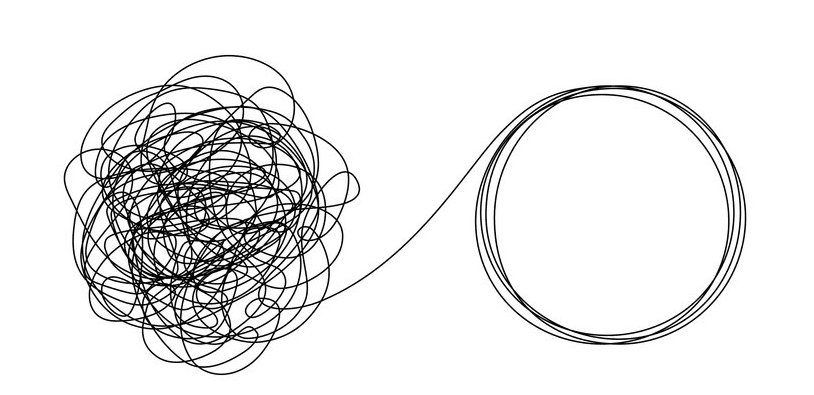Explore the World's Best Ideas
Join today and uncover 100+ curated journeys from 50+ topics. Unlock access to our mobile app with extensive features.
Observing Mind
How does the mind actually work? Many wisdom traditions stress the importance of training and observing the mind.
However, except for Buddhist teachings, most provide very few instructions on how to do so.
The Buddha taught, “Whatever one frequently thinks and ponders upon, that will become the inclination of the mind.”
In the excellent new book Beyond Distraction, author and longtime meditation teacher Shaila Catherine explains:
24
358 reads
Distraction is Universal
Whether you are experienced meditator or a beginner, you probably know the pain of wrestling with an unruly, distracted mind.
Before you can experience the extraordinary joy of a settled and concentrated mind, you must learn how to dispel distractions…
Distraction is universal, even the Buddha tells us that before enlightenment, he sometimes found his mind preoccupied with thoughts connected with sensual desire, ill will, and harm.
However, distracting thoughts did not daunt him. He figured out how to deal with thoughts skillfully and developed a step-by-step approach to calm the restless mind.
24
273 reads
Spiritual Development
Buddhist teachings encourage people to actively cultivate the more trustworthy happiness that comes with spiritual development.
Happiness associated with virtue, meditation, and wisdom is prized
Although thinking is useful, an untrained mind tends to repeat distressing patterns. In Beyond Distraction, Catherine writes how many people suffer from chronic comparing, endless worrying, seductive fantasizing, or relentless planning.
One can even develop anxiety through countless hours of obsessing about the past or imaginative rehearsals of how to respond to future events.
24
238 reads
Buddhist Teaching
According to Catherine, Buddhist teachings advise,
The training begins by recognizing that a thought is just that — a thought, a creation of our own minds. From this recognition, we distinguish what is skillful and unskillful, and then progress through a traditional training sequence in which we learn (1) to replace unwanted thoughts, (2) to examine the risks of fueling habitual patterns, (3) to withdraw attention from toxic conditions, (4) to investigate causes, and (5) to exert dedicated resolve.
26
224 reads
Calmness in Activity
Understanding how the mind works can strengthen focused attention, clear away distractions, organize priorities, and reduce the destructive forces of craving, aversion, and delusion. “These time-tested methods for overcoming distractions are needed more than ever,” writes Catherine.
Buddhist teaching can aid us in finding calm in all aspects of life. In the classic Zen Mind, Beginner's Mind, Suzuki Roshi explained that real calmness should be found in activity itself.
"It is easy to have calmness in inactivity, it is hard to have calmness in activity, but calmness in activity is true calmness."
24
207 reads
Thousand Directions
An untrained mind ultimately leads to suffering. "One wields mastery over the mind," stressed the Buddha, "one does not let the mind wield mastery over him."
Many kinds of disruptive thoughts can obstruct our concentration in meditation. In daily life, these same distractions cause similar disruptions (anxiety, procrastination, worry, depression, etc.) while negatively impacting relationships, productivity, and ease of mind.
As the late Zen Master Thich Nhat Hanh put it, "The mind can go in a thousand directions, but on this beautiful path, I walk in peace."
25
172 reads
Liberating Understandings
In Beyond Distraction, Catherine writes,
“Liberation requires letting go of the illusion that we exist as a permanent self, an observer, a witness, or the controller of activities. Self-grasping is not abandoned through effort, but by understanding that the illusion of self is constructed through layers of mental habits, misperceptions, and attachments.”
The point of the teaching goes far beyond self-improvement projects. Catherine suggests, “Powerful, liberating understandings occur by directly experiencing the “nots” — not-clinging, not-self, not-mine, not-fabricated, not-identifying.”
26
175 reads
The Path
Letting go of habits and unbinding the mind from the forces of delusion are the route to freedom. Liberation comes not from becoming, but from letting go.
----------
Welcome | The PATH
The PATH is a gathering of short reflections: every Monday, we send three timeless insights designed to help you live your highest good. We also produce the podcasts In Search of Wisdom and Perennial Meditations, and write short articles on wisdom for everyday life.
“Seek the wisdom that will untie your knot. Seek the path that will demand your whole being.” — Rumi
https://www.perennialleader.com/path
22
157 reads
IDEAS CURATED BY
Antonio Gallo's ideas are part of this journey:
Learn more about books with this collection
How to find common interests
How to be a good listener
How to overcome social anxiety
Related collections
Different Perspectives Curated by Others from Beyond Distraction
Curious about different takes? Check out our book page to explore multiple unique summaries written by Deepstash curators:
8 ideas
Patrick Blair's Key Ideas from Beyond Distraction
Shaila Catherine
Discover Key Ideas from Books on Similar Topics
12 ideas
12 Science-Based Benefits of Meditation
healthline.com
40 ideas
The Silva Mind Control Method
Jose Silva, Philip Miele
7 ideas
7 Ways to Destroy Adversity
The Journey of Σ
Read & Learn
20x Faster
without
deepstash
with
deepstash
with
deepstash
Personalized microlearning
—
100+ Learning Journeys
—
Access to 200,000+ ideas
—
Access to the mobile app
—
Unlimited idea saving
—
—
Unlimited history
—
—
Unlimited listening to ideas
—
—
Downloading & offline access
—
—
Supercharge your mind with one idea per day
Enter your email and spend 1 minute every day to learn something new.
I agree to receive email updates
